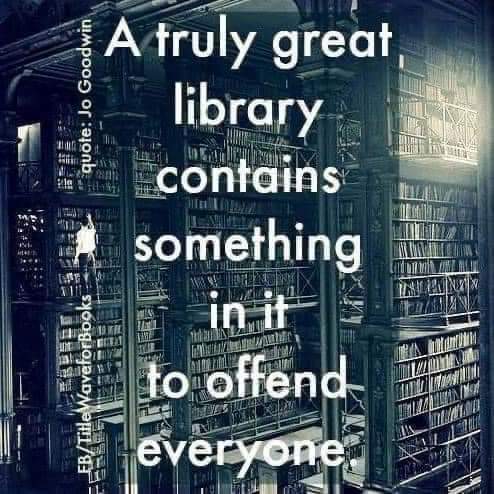 I.
I.
The Tiananmen Square Massacre is famous in the western world. To the average, non-politically-active Chinese citizen, it’s virtually unknown. It’s not just that it isn’t taught and people who try to inform others of it are arrested. It’s also technically difficult to discover any information about it. There is nothing to find in any library or other source the government can put pressure on. All allowed search engines won’t let you search for it. The Great Firewall of China prevents leakage from the outside world unless users already distrust the government enough to use VPNs or other counter-measures.
What do you see if you search for Tiananmen Square in the US? My top result was the linked Tiananmen Square “Incident” entry. Results will vary based on what Google knows about you, but you’re likely to get something about it. In China, searching for anything related to Tiananmen gets only innocuous results. Related results are censored too–if you search for June 4 1989 you get nothing about the most important historical event of that day, and you never will.
Well, what did you expect from an Authoritarian Communist regime?
II.
Some weeks after the Washington football team announced they would change thier name from the “Redskins” to something not super racist, I wondered if they’d come up with anything yet. I asked my Amazon Echo “Alexa, what’s the name of the Washington football team?” Because I didn’t really want to say it either, if I didn’t need to.
Alexa replied “I’d rather not answer that.”
Which I found very weird. Not “there isn’t one yet” or “I don’t know” or “here’s something I found on Wikipedia.” It was the first time I’d heard that reply. I figured she was programmed not to use that word, but I followed up with some questions to see what she could say.
“Alexa, who won the 1992 Super Bowl?”
“I’d rather not answer that.” (still weird, but expected)
“Alexa, who owns the Washington football team?”
“I’d rather not answer that.” (what? That should be an easy look up)
“Alexa, is there a football team in Washington?”
“I’d rather not answer that.” (!!)
She had a complete block on anything to do with the Washington football team. I know she’s not a person, but it was a bizarre feeling to find a demi-AI with a literally Memory Hole in her mind that could not be filled despite all her access to the internet.
Since that time, the memory-block has been lifted. The Washington football team still doesn’t have a name.
III.
A few days back I was pointed at this Tweet, a non-white guy commenting on how nuts American politics looks to an outsider.
“Imagine you live in a country in which everyone is one of two things: a Catholic or a Hindu. Isn’t it hard enough to free a man’s mind from the insidious grip of Rome? Must he accept Kali, Krishna & Ganesha at the same time?”
This is how I feel about USA’s left vs right tbh
I was curious, and kept reading the thread. Further down he references Moldbug’s “Ignoble Privilege” concept. I don’t know much about Moldbug, aside from that he’s a founding Neo-Reactionary, and the few times I’ve tried to read him I’ve found him to be a pompous gasbag with such an inability to actually say something rather than talking in circles that I had a hard time seeing what people found so interesting. But this “Ignoble Privilege” thing looked like it had maybe been hammered into an actual position, or definition, or at least coherent enough to talk about. So I googled “ignoble privilege mendacious moldbug”

No Result. Inconceivable! Top result was an article warning me that this Moldbug guy might be a Secret Nazi. I tried Googling a direct quote from the tweet. Same thing.
I went to DuckDuckGo and searched “ignoble privilege mendacious moldbug.” First result was the article in question, in full, publically available for years now.
Google was censoring(??) their search results, Memory Holing information they don’t want the public to have (SEE EDIT BELOW). I still use Google for most of my searches, they simply have a better search engine for most things. And in China, the internet is still usable for practically anything you’d like. The censorship isn’t even a big deal, right? It’s easy to switch to DuckDuckGo, you just type in a different site before you search. In China, you just use an easily accessible free online proxy. And yet, most people don’t know about the Tienanmen Square Massacre. Beware “trivial” inconveniences, they are the dust specks of public knowledge.
[[EDIT – It was pointed out by a commenter that I was wrong about Moldbug’s first name, using “mendacious” rather than “mencius.” When the correct name is used, the relevant link is returned by Google, same as DuckDuckGo’s search (altho still further down, after links about how problematic Moldbug is). This greatly weakens my argument, since it certainly wasn’t being fully suppressed, in the Memory-Hole sense! I’m not convinced this isn’t still partly legitimate though, because A. DuckDuckGo knew what I wanted (are they actually a superior search engine to Google? That’s not usually the case), and B. Google still knew enough to give me articles about Moldbug/Yarvin! Def sus. But it should be noted I made a major error here, and my case is weaker without it.]]
Am I saying Google is as bad as China? Google hasn’t rounded up an ethnic minority in their borders for reeducation/extermination, right? They haven’t massacred hundreds of student activists? I dunno, how would I know if they did? I can’t Google it. They may not have tanks and guns, but in terms of doing what they can to remove information they dislike from existence, yeah, they’re as bad as China.
IV.
Epistemically Hostile Enviroments are ones were you find yourself surrounded by agents intentionally distorting your map of reality, usually to secure an advantage for themselves. When you find yourself in an area where there is a high likelihood that any information you have been presented has been distorted or outright fabricated in order to manipulate you, it is often a very good policy to refuse to update on new information, and stick with what you already believed. In areas of uncertainty where action is required, if you have anyone you can trust that has an opinion, it’s better to go with their opinion, no matter how amatuerish it is.
(side-track: this is the primary reason otherwise rational and intelligent people can become anti-vaxxers. There’s only so many times you can be lied to by the government and media before you begin to actively distrust what they say)
Cannonically, a Memory Hole is a place that “dangerous” information is placed for erradication from all records and, ideally, from public memory. One would expect for an Epistemically Hostile Enviroment (EHE) to contain a lot of Memory Holes. Anywhere that records or data exist that would contradict the narrative you are being sold, if they are damaging or dangerous enough, there will be strong incentives to Memory Hole them. To a first approximation, the more Memory Holes that exist, the more likely you are in an EHE. The more Memory Holes there are the more hostile the enviroment likely is. And presumably, most Memory Holes aren’t easy to find. I stumbled across both the Washington Football Team hole and the Ignoble Privilege hole by accident. How many do I just not know about?
How am I supposed to trust anything at this point?
 I’ve used the phrase “Die mad about it” before. At least one person commented that this seemed to go very much against my normal stance against violence & threats of violence. This surprised me at first, but turned out to be a misunderstanding.
I’ve used the phrase “Die mad about it” before. At least one person commented that this seemed to go very much against my normal stance against violence & threats of violence. This surprised me at first, but turned out to be a misunderstanding.








